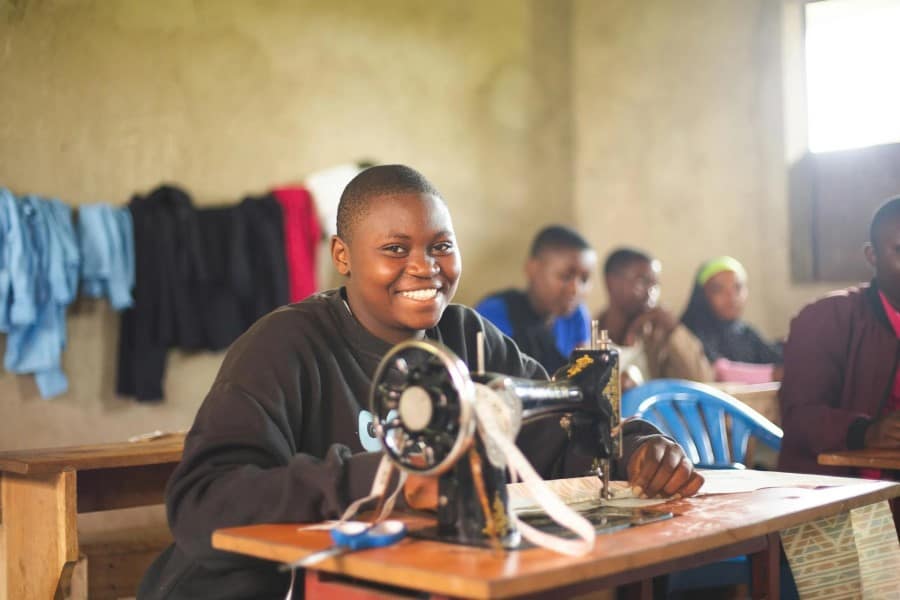12 Ways Education Can Break the Cycle of Poverty

Education is a powerful tool for breaking the cycle of poverty, offering individuals and communities the knowledge, skills, and opportunities needed to build better lives. Here are 12 ways education can significantly impact poverty reduction on a global scale:
1. Enhanced Employment Opportunities
Education equips individuals with the skills and knowledge necessary to secure better-paying jobs. With higher educational attainment, people can access a wider range of employment opportunities, which can lead to increased income and improved living standards. Educated individuals are also more likely to be employed in stable and formal sectors, reducing their vulnerability to economic shocks.
2. Economic Growth
A well-educated workforce is essential for economic development. Education fosters innovation, increases productivity, and promotes entrepreneurship. Countries with higher literacy rates and better educational systems tend to have stronger economies, which can lift entire populations out of poverty.
3. Improved Health Outcomes
Education contributes to better health by promoting awareness of healthy practices and increasing access to healthcare information. Educated individuals are more likely to seek medical care, understand the importance of vaccinations, and adopt healthier lifestyles. Better health leads to increased productivity and reduced healthcare costs, creating a positive feedback loop that helps alleviate poverty.
4. Empowerment of Women and Girls
Educating women and girls has a profound impact on poverty reduction. When girls receive education, they are more likely to delay marriage, have fewer and healthier children, and participate in the workforce. Empowered women contribute to the economy and make informed decisions that benefit their families and communities, breaking the cycle of poverty.
5. Reduction of Inequality
Education promotes social and economic equality by providing opportunities for disadvantaged groups to improve their circumstances. Access to quality education helps level the playing field, allowing individuals from all backgrounds to compete fairly for jobs and other opportunities.
6. Social Stability and Cohesion
Education fosters critical thinking, tolerance, and understanding among individuals, contributing to social stability and cohesion. Educated populations are better equipped to address social issues, engage in civic activities, and promote democratic governance, leading to more stable and prosperous societies.
7. Increased Civic Participation
Educated individuals are more likely to participate in civic activities, such as voting, volunteering, and engaging in community projects. Active civic participation helps address local issues, improves governance, and ensures that the needs of the poor are represented in policy-making processes.
8. Reduction of Child Labor
Access to education reduces the prevalence of child labor by providing children with an alternative to working. When children attend school, they are less likely to be exploited in labor markets and more likely to acquire the skills needed for future employment. This helps break the intergenerational cycle of poverty.
9. Improved Environmental Awareness
Education increases awareness of environmental issues and promotes sustainable practices. Educated individuals are more likely to understand the impact of environmental degradation and take action to protect natural resources. Sustainable development practices can lead to long-term economic growth and poverty reduction.
10. Better Family Planning
Education, particularly for women, leads to better family planning and reproductive health. Educated individuals are more likely to use contraception, have smaller families, and invest more in each child’s education and well-being. This can lead to improved economic stability and reduced poverty rates.
11. Reduction of Crime Rates
Higher levels of education are associated with lower crime rates. Educated individuals are less likely to engage in criminal activities and more likely to contribute positively to society. Reduced crime rates create safer communities and lower the costs associated with law enforcement and incarceration.
12. Fostering Innovation and Technology Adoption
Education promotes innovation and the adoption of new technologies, which can drive economic growth and development. Educated populations are better equipped to develop and utilize new technologies, leading to increased productivity and new business opportunities. This can help lift entire communities out of poverty.
Education & Cycle of Poverty Conclusion
Education is a critical catalyst for breaking the cycle of poverty. By enhancing employment opportunities, promoting economic growth, improving health outcomes, and empowering women, education creates a ripple effect that benefits individuals, families, and entire communities. Investing in education is essential for achieving sustainable development and reducing poverty globally. By prioritizing access to quality education for all, we can build a brighter future for generations to come.
Help Break The Cycle Of Poverty
At End Poverty Now, our ability to make a difference and help break the cycle of poverty hinges on the kindness of donors like you. Your support provides crucial resources, opportunities, and hope to those in need. Whether you choose to make a one-time donation or become a recurring donor, every contribution helps us on our mission to end extreme poverty.
End Poverty Now welcomes cash donations, but we also specialize in accepting donations of hard-to-sell assets such as real estate, aircraft, vehicles, and boats. These contributions help fund projects dedicated to alleviating poverty both domestically and internationally. Please see how you can help end poverty and thank you for considering us in your philanthropic efforts.
End Poverty Now is a 501c3 nonprofit charity accepting cash donations and specializing in donations of hard-to-sell assets such as real estate, aircraft, vehicles, and boats to fund projects aimed at fighting poverty at home and abroad.


